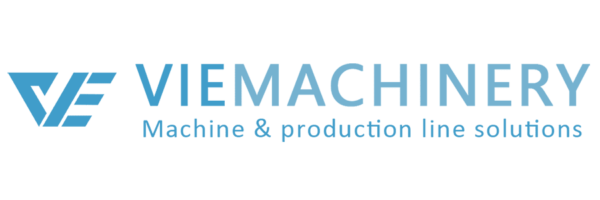Plastic cup-making machines have revolutionized the production process for disposable cups, making it faster, more efficient, and cost-effective. Whether you’re a small business owner or a large manufacturer, investing in the right plastic cup-making machine can significantly impact your production capabilities and bottom line. This article explores the types, features, and pricing of these machines, helping you make an informed decision for your business.
Types of Plastic Cup-Making Machines
Thermoforming Machines
Thermoforming is a widely used technology in plastic cup-making. It involves heating plastic sheets until they become pliable, then stretching and forming them into the desired shape. The final step is trimming the formed cups. Thermoforming machines are versatile and can handle various types of plastics such as PP, PVC, PS, and PET.
Injection Molding Machines
Injection molding machines are another popular type of plastic cup-making machine. These machines inject molten plastic into a mold to form cups. Injection molding is ideal for producing high-precision cups with consistent quality. However, it is generally more expensive than thermoforming.
Automatic vs. Fully Automatic Machines
Plastic cup-making machines come in both automatic and fully automatic variants. Automatic machines require some level of human intervention, such as loading plastic sheets or removing finished cups. Fully automatic machines, on the other hand, handle the entire process from start to finish, significantly reducing labor costs and increasing production efficiency.
Key Features and Capabilities
Material Versatility
One of the significant advantages of modern plastic cup-making machines is their ability to handle multiple types of plastics. This versatility allows manufacturers to produce a variety of cup styles and sizes, catering to different market needs. For example, thermoforming machines can process PP, PVC, PS, and PET materials, making them highly adaptable.
Production Speed and Efficiency
Speed is a critical factor in the manufacturing process. High-speed machines can produce thousands of cups per hour, substantially boosting productivity. Fully automatic machines are particularly efficient, as they minimize downtime and reduce the need for manual intervention. This efficiency translates to lower operational costs and higher output.
Precision and Consistency
The quality of the cups produced is paramount. Advanced machines offer high precision and consistency, ensuring that each cup meets the required specifications. Injection molding machines, for example, are known for their ability to produce cups with uniform wall thickness and smooth surfaces.
Pricing and Cost Considerations
Investing in a plastic cup-making machine is a significant financial decision. Prices for these machines typically range from $21,000 to $25,000 per set, depending on the model and features. It’s essential to consider the minimum order quantities, as some suppliers may require bulk purchases.
While the initial investment may seem high, the long-term benefits often outweigh the costs. Improved production efficiency, reduced labor costs, and higher output can lead to substantial savings over time. Additionally, the ability to produce a variety of cup styles can open new revenue streams.
FAQ
What materials can plastic cup-making machines handle?
Most modern plastic cup-making machines can handle a variety of materials, including PP, PVC, PS, and PET. This versatility allows manufacturers to produce different types of cups to meet market demands.
What is the difference between automatic and fully automatic machines?
Automatic machines require some human intervention, such as loading materials and removing finished products. Fully automatic machines handle the entire production process, from material loading to finishing, without the need for manual input, thereby increasing efficiency.
How much do plastic cup-making machines cost?
The cost of plastic cup-making machines typically ranges from $21,000 to $25,000 per set. The price can vary based on the machine’s features, capacity, and the manufacturer’s pricing policies.
How fast can these machines produce cups?
Production speed varies by machine type and model. High-speed machines can produce thousands of cups per hour. Fully automatic machines are particularly efficient, maximizing output and minimizing downtime.
Are there minimum order quantities for purchasing these machines?
Yes, some suppliers may have minimum order quantities. It’s essential to check with the supplier to understand their requirements and ensure they align with your production needs.
In conclusion, plastic cup-making machines offer a range of options to suit different manufacturing needs. From thermoforming to injection molding, and from automatic to fully automatic, there’s a machine for every requirement. By understanding the types, features, and pricing, businesses can make an informed decision that balances cost with production efficiency. Investing in the right machine can lead to significant long-term benefits, including increased productivity, lower operational costs, and the ability to produce a diverse range of products.
For more information on other manufacturing equipment, you can explore our detailed guide to manufacturing machinery.

I want a complete production line for pvc making machinery for cup, plate ,buckets and PVC containers like food warmer ,paint containers etc